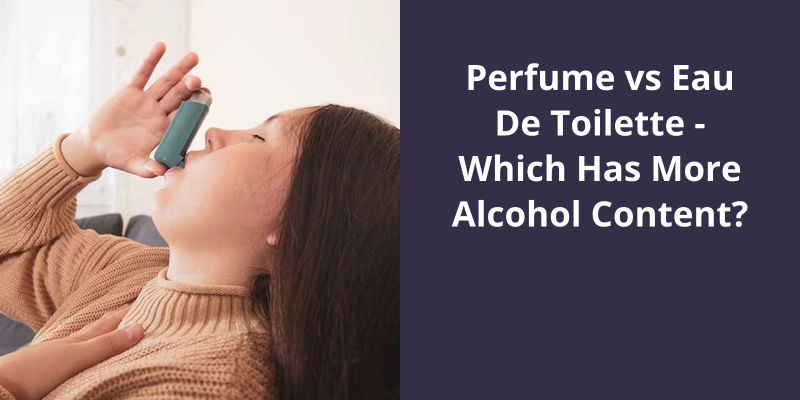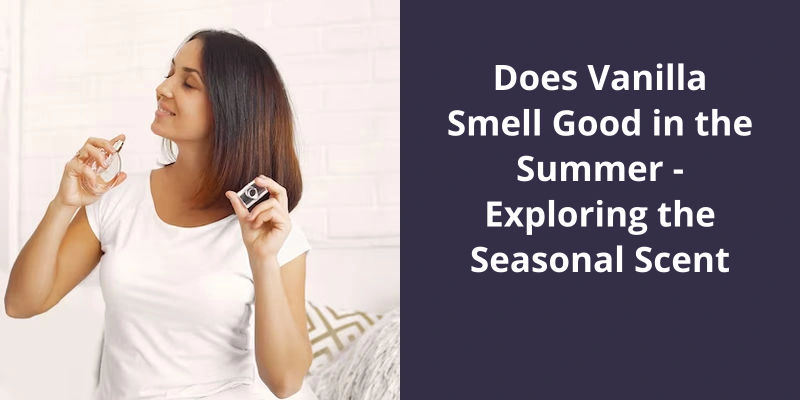Perfume and Eau De Toilette are types of fragrances that differ largely in their concentration and longevity. Perfume, also known as parfum, has the highest concentration of fragrance ranging from 20% to 30%, which makes it last longer, often for six to eight hours. Because of this concentrated formulation, perfumes are typically more expensive. On the other hand, Eau De Toilette has a lighter concentration of fragrance, about 5% to 15%, which typically lasts for two to three hours. It’s often used for daytime wear due to its soft scent. Therefore, if you prefer a stronger fragrance that lasts longer, a perfume would be a better choice, while Eau De Toilette would suit you if you prefer a lighter, more fleeting scent.

What Is the Difference Between Eau De Toilette and Parfum Alcohol?
Perfume and eau de toilette are two popular choices when it comes to selecting a fragrance. However, one key difference lies in the alcohol content. Eau de toilette, often abbreviated as EDT, has a higher alcohol content compared to perfume or eau de parfum (EDP).
The higher alcohol content in eau de toilette is beneficial for those who prefer a lighter and less concentrated scent. Because it’s more diluted, eau de toilette is less expensive and can be sprayed liberally as a day-to-day or night scent. This makes it a popular choice for those who enjoy applying fragrance more generously.
In contrast, eau de parfum and parfum contain less alcohol and therefore have a higher concentration of fragrance oils. This concentration is particularly advantageous for those with sensitive skin, as the lower amount of alcohol is less likely to cause irritation.
The downside of eau de parfum and parfum is that they tend to be more expensive due to the increased concentration of fragrance oils and the higher quality of ingredients used. However, for those who’re passionate about fragrance and appreciate the complexity and depth of scents, the higher price tag can be well worth it.
Ultimately, the choice between eau de toilette and eau de parfum or parfum depends on personal preference, budget, and desired longevity of the scent. It’s important to keep in mind that individual body chemistry can also affect how a fragrance develops and lasts on the skin.
The combination of these ingredients gives eau de Cologne it’s refreshing and citrusy scent. While alcohol is a key component, it’s the essential oils that truly define the fragrance.
Does Eau De Cologne Contain Alcohol?
Eau de Cologne is a popular fragrance that’s known for it’s refreshing and invigorating qualities. One may wonder, does eau de cologne contain alcohol? The answer is yes. In fact, alcohol is a key ingredient in the production of this scented water, and it’s essential for it’s formulation.
The core of eau de cologne lies in it’s hesperides essential oils. These oils, typically derived from fruits such as bergamot, lemon, orange, and neroli, contribute to the fresh and citrusy scent that’s characteristic of eau de cologne. They enhance the fragrance and provide a refreshing and uplifting experience when applied to the skin.
These can include herbs and spices that complement the citrus notes and enhance the overall fragrance experience.
The alcohol serves as the base, allowing the aromatic ingredients to come together and create a refreshing and dynamic scent that’s stood the test of time.
Different Fragrances and Ingredients Used in Eau De Cologne: Explore the Various Scents and Components Commonly Found in Eau De Cologne, Beyond the Traditional Citrus Notes.
- Bergamot
- Lemon
- Lime
- Orange
- Mandarin
- Grapefruit
- Lavender
- Rosemary
- Thyme
- Neroli
- Vetiver
- Patchouli
- Sandalwood
- Musk
- Cedarwood
- Amber
- Vanilla
- Tonka bean
- Oakmoss
- Incense
When it comes to fragrances, many people wonder about the composition of eau de parfum. Unlike perfume oils which use carrier oils like Jojoba, eau de parfum contains alcohol and is commonly found in spray bottles for convenience. Whether you opt for a modern spray bottle or a classic atomizer bulb, this popular choice allows you to easily spritz on your favorite scent throughout the day.
Is Eau De Parfum Alcohol Based?
Eau de parfum, like it’s counterparts, contains a certain amount of alcohol as it’s base. Unlike perfume oil, which is mixed with carriers like jojoba, eau de parfum utilizes alcohol as a carrier. This makes it the go-to choice for those looking for a portable and easy-to-use fragrance option. You can find eau de parfum in convenient spray bottles that can fit neatly inside your purse or bag. With a simple spritz, you can refresh your scent throughout the day.
For those with a nostalgic side, eau de parfum can also evoke a sense of classic elegance. It can take you back to the glamour of the 1930s, where atomizer bulbs were a popular way to dispense fragrances. Spritzing yourself with an eau de parfum can give you that old-fashioned, sophisticated feel.
However, it’s worth noting that the alcohol content in eau de parfum can make it slightly drying for certain skin types. If you’ve sensitive or dry skin, you may want to consider moisturizing your skin thoroughly before applying eau de parfum to avoid any potential discomfort.
The Differences Between Eau De Parfum and Other Fragrance Concentrations (e.g. Eau De Toilette, Perfume, Cologne)
- The concentration of fragrance oils: Eau de parfum contains a higher concentration of fragrance oils compared to other fragrance concentrations such as eau de toilette, perfume, and cologne.
- Scent intensity: Eau de parfum has a stronger and longer-lasting scent compared to eau de toilette, perfume, and cologne.
- Longevity: Eau de parfum typically lasts longer on the skin compared to other fragrance concentrations.
- Usage: Eau de parfum is often used for special occasions or when a stronger scent is desired, while eau de toilette, perfume, and cologne are more commonly used for everyday wear.
- Price: Eau de parfum is usually more expensive than eau de toilette, perfume, and cologne due to it’s higher concentration of fragrance oils.
Conclusion
In conclusion, when it comes to the comparison of alcohol content between perfume and eau de toilette, it’s evident that perfumes have a higher concentration of perfume oils and less alcohol. Ultimately, choosing between the two depends on personal preferences and desired fragrance longevity.





